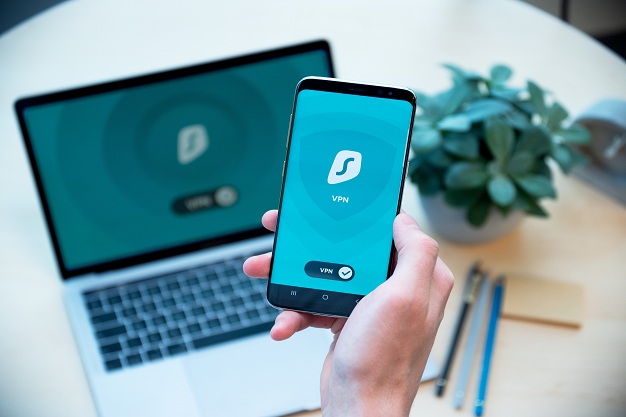
A hybrid model at the workplace is the new normal. Employees and employers both are quite comfortable with this work model as it enables a great work-life balance. Also, the remote work culture does not hamper the quality of work as well. Almost 9 out of 10 companies want to continue a hybrid work culture. It is observed that employees are more productive and comfortable in their work from home culture. Though everything is in favour, there is one issue that makes hybrid work culture a big problem, if not treated on time – security practices for the hybrid world.
In this blog, we are going to discuss security measures that can be taken to avoid cyber security issues in a hybrid world.

Tips To Secure The Hybrid Workforce
In the computer world, security has been the biggest issue from day 1. With time, this issue got stronger and still, many cybersecurity cases are happening every day and a lot of the cybercriminals are not even caught. This calls for a reliable security arrangement for the entire organisation and the employees working remotely. Learn these tips to overcome cybersecurity challenges when you work from home.
1. Identify Your Risks
To prevent yourself from cyberattacks, it is first important to recognise the potential risks. Stay updated with the trending cyberattacks, and study their precautions and the cure as well. For example, hacks through QR codes, phishing emails, non-encrypted chat platforms, etc.
Keep studying the case studies related to cyber security and try to implement the observations in your organisation.

2. No Trust Policy
We have heard many cases where people make identical email addresses and send scam mails. If you will stay aware of this tip, there will be fewer chances of getting trapped.
First of all, you should adopt a mindset that you can not trust any random email. Even if it is from a known source, you must judge the information and if it sounds fishy to you, do not click on any link or download any media.
Or else, you can directly contact the sender to confirm what is there in the email and then open it.
3. Instil Security Practices In Employees
First of all, it is not just training the employees, it is way beyond that. Like an organisation trains employees to work in a certain manner and their work is judged as per their performance. Similarly, the IT team has to train employees properly and form performance-based incentives or rewards.
Policies and rewards will work as motivation as well as fear of failure and its consequences. Thus, employees will take security seriously and adopt the practices religiously. Also, the IT team will not have to increase their team or work pressure as their work will be limited to supervision and rectification if some error occurs.
Make sure you do not make policies too harsh that employees hesitate to ask or tell you about the cybersecurity issues.

4. Enable Multi-Factor Authentication
The name says it all, multi-factor authentication is a multiple layer user authenticator. In multi-factor authentication, you could be asked to enter OTP (one-time password), year of birth, or anything else to ensure that the right user is accessing the account.
This way nobody will be able to access the information without permission. Also, if someone tries to log in without knowing about the login credentials. The notification will go to the IT team about the unsuspicious password. If you could explain a valid reason, it is fine. Otherwise, your device can be sealed too and your job could be in danger. (depending on the usage). thus, it is better you take all password security measures to protect your valuable information.
5. Use Encryption-Enabled Platforms
Encryption allows private communication. It converts the message into an unreadable algorithm and decrypts it when it reaches the receiver. This way, the platform can not read your personal or sensitive messages; giving full protection to your messages.
Almost 70% of people experienced online fraud in 2020 (Covid-19 era). Also, remote work means more interaction over texting platforms. It is important to have encrypted platforms such as Skype, emails, WhatsApp, etc. so that you stay rest assured that your messages and the information are safe.
Also, if you are confused while choosing the right platform, you must search on Google and then choose the right one.
6. Use VPN
Simple logic – you can not be trapped when you are not visible. This is possible with the help of a VPN, a Virtual Private Network. By enabling this, you will be given a different address in a different place or country so your real IP address will be hidden. Therefore, hackers won’t be able to track you and plan a trap for you.

In The End
To secure the new hybrid workplace, the best way to implement these tips is to make policies and company rules while considering these suggestions. This way employees will take this more seriously otherwise it will be only the IT team’s responsibility to take care of cybersecurity threats. For more information on cybersecurity and its precautionary steps, keep visiting our website. Also, do share your ways to stay protected from hackers and cyberattacks in the hybrid work culture.
